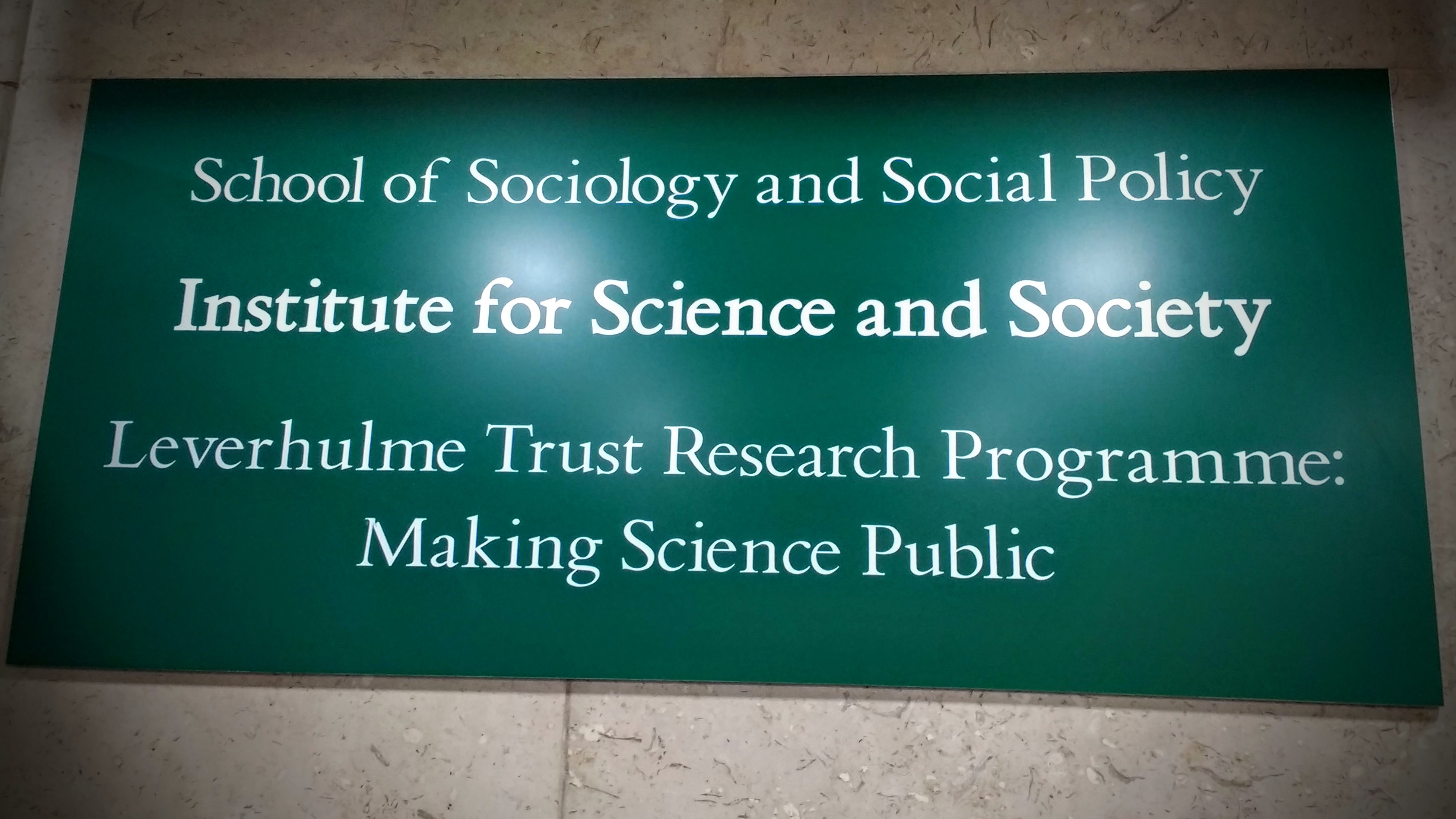
November 10, 2017, by Brigitte Nerlich
Making science public: Taking stock
When we wrote our ‘Making Science Public: Challenges and Opportunities’ research project some six or so years ago, various scandals had rocked the unspoken contract between science and society, universities and their users (BSE, MMR, climategate etc.). This contributed to a widely held perception, and I stress perception, of a lack of public trust in science, a decline in the capacity of science to underpin political legitimacy, and tensions in the relationship between government and science.
At the time, a solution to these problems was seen to lie in ‘making science public’; or, more precisely in making the practice, use and assessment of science (as it relates to policy-making and forms of political participation) more public, open, transparent and democratic. These apparent solutions and ideals are now increasingly threatened and notions of openness and transparency have become contested and abused.
While ‘making science public’ might still be seen as a virtue, an aspiration, a promise and a way of maintaining trust between science and society, many political changes are endangering the possibilities and processes of ‘making science public’. These changes relate to, amongst many others, the trend towards evidence-free policy making in some countries, increasing political polarisation, tribalism and populism, anti-intellectualism, the erasure of established knowledge on websites and in books, alternative facts, information bubbles, the marketisation of universities, the fetishisation of entrepreneurship, and sustained threats to “mainstream institutions devoted to gathering and disseminating knowledge (journalism, science, the academy)”.
Science, universities and journalism
Universities as ‘public’ institutions have always been there to ‘make science public’ (and to make public science). Their core mission has been to generate, transmit, disseminate, and critically evaluate scientific, cultural, societal, political knowledge and skills. This has increasingly involved engagement and dialogue with people outside the academy, be they lay people, expert policy makers or journalists and media experts. There are challenges and pitfalls to this opennness and ‘publicness’ of science, some of which we have studied in a forthcoming edited collection. And yet, we did not quite anticipate the hazards that are now emerging.
Journalists, science writers and science communicators (who might all be or have been scientists themselves) also play an important role in making science public. There have, of course, been many discussions about how best to do this and what role such ‘intermediaries’ play in science and society. However, recently journalism and science writing have become more difficult. News reporting in general is under threat from politicians and from fake news providers, especially on social media. Science news in particular is undermined by financial cutbacks and changes in broadcasters’ priorities. As a headline in The Independent reported a few days ago, “BBC axed science reporting course despite concerns over ‘false balance’ on issues like climate change, doc reveals”.
What is even worse, academics, journalists, writers, thinkers, experts are now seen, as one of my colleagues pointed out to me, as a problem rather than as a solution. They are framed and perceived as ‘boffins’ or ‘clever people’ with ‘fancy degrees’ who think they know it all, but know nothing about things that happen in the ‘real world’.
Strawmen and stereotypes
In contrast to this framing and perception, scientists and science writers mostly do their work because they know that they know nothing or little about certain aspects of nature and reality and want to find out more. As citizens, they also know quite a bit about why and how things happen in the ‘real world’ and are quite alarmed by some of them. In both capacities, as scientists and citizens, they even want to make some of their findings and thoughts public. This is becoming increasingly difficult in a landscape that values political allegiance more than scientific understanding and where the value of knowledge and expertise is misconstrued and misappropriated.
On the Public Understanding of Science Blog, Rony Armon reports on a lecture by Guardian columnist Jonathan Freedland that focused on “Post-truth, lies and fake news.” In the context of reporting on this lecture, Rony also talks about a study carried out by him and his co-author Alexandra Georgakopoulou. They conducted interviews with scientific experts and “observed that while they [scientists] guarded claims to authority and presented their findings as newsworthy they also distanced themselves from any idealized or exaggerated claims of expert omnipotence. Their stories often presented research as an ongoing quest rather than as promising future discoveries or applications.”
These findings are important, as they contradict widespread preconceptions about scientists who are positioned as omniscient oracles and self-appointed purveyors of absolute truth and certainty. Such myths, strawmen and stereotypes have always been around, but are now being used more actively to undermine attempts at ‘making science public’, making science in public, and making public science.
Future research is needed not so much into how best to make science public, but into how to prevent the spread of misconceptions about what science is and does and what scientists are and do. Only then can the promises of the general ‘making science public’ dream be realised in collaboration between science and society and on the basis of mutual understanding. This will be difficult in a world where values are changing fast and the value of knowledge, expertise and science is more and more disputed.

[…] inhibit true progress and passion for science (Lawrence; Cohen; Young; Smaldino; Martínez-Arias; Nerlich). As part of the current adverse developments, basic biomedical research (which is the life-blood […]
[…] inhibit true progress and passion for science (Lawrence; Cohen; Young; Smaldino; Martínez-Arias; Nerlich). As part of the current adverse developments, basic biomedical research (which is the life-blood […]